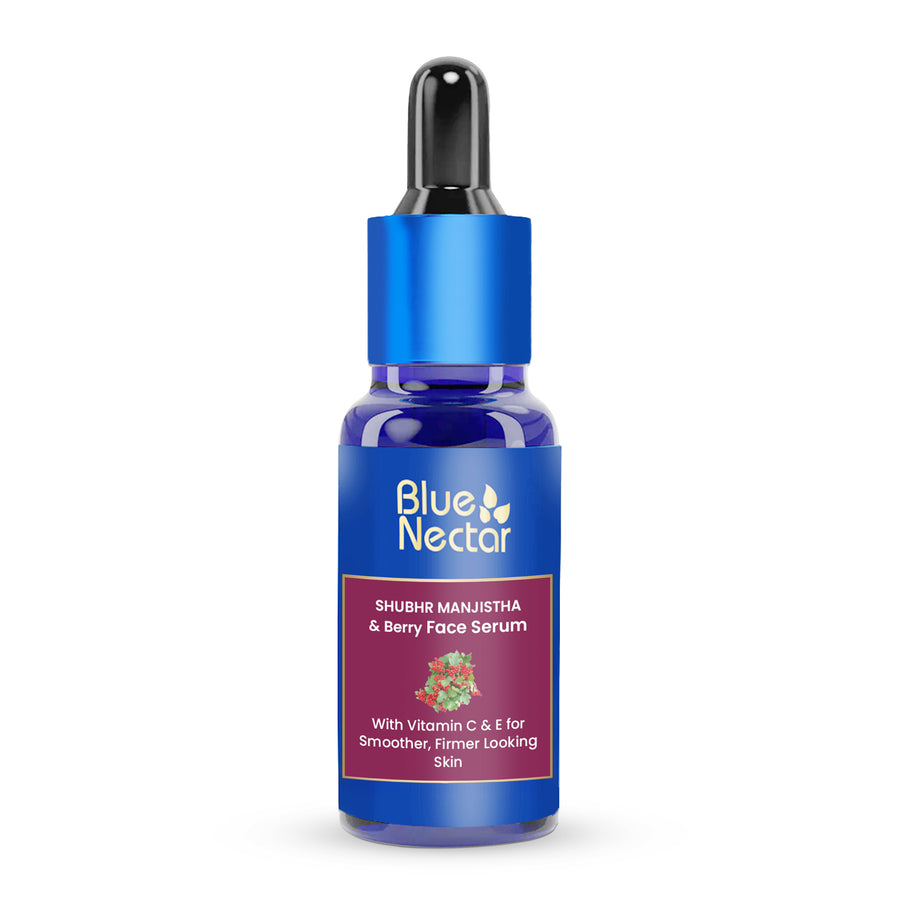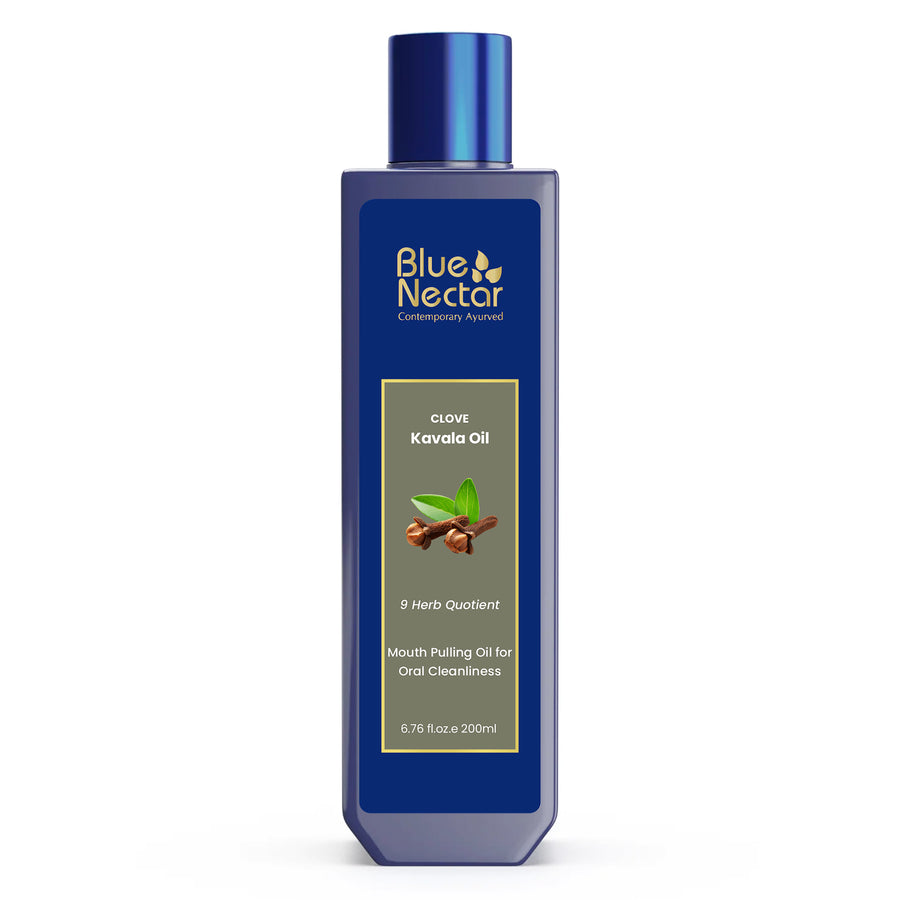Uncovering Kojic Acid's Potential: A Natural Fix for Bright Skin
| Estimated Reading Time: 9 minutes |
In the rapidly changing skincare industry, consumers are increasingly brought to natural, plant-based solutions. With people growing more conscious of what is in their product ingredients, healthy sustainability skincare is shooting through the roof. And with tons of the conversation presented over many plant-based ingredients out there, there's one: Kojic Acid. Here lies the powerful key in enabling individuals to achieve that glowing, even skin. Kojic acid - a compound found naturally in mushrooms and rice water - was considered sacred, as it temporarily lightened the skin and rectified those aberrant pigments.
Table of content: |
One compound from mushrooms and rice was very common in new cosmetic creams made to treat hyperpigmentation, and its use is even spoken of as embodying the principles of Ayurveda. This blog delves deeper into the dimensions of Kojic Acid: origin, benefits, and how it combines well with Ayurvedic practices for skincare.
Understanding Kojic Acid: Science Meets Ayurveda
Kojic acid is a synthetic chemical compound that has gained significant attention in the world of skincare because of its extraordinary lightening ability of hyperpigmentation and skin tone. Scientifically, Kojic Acid causes impairment in the activity of one vital enzyme called tyrosinase involved in melanin production-the pigment responsible for skin color. By the impairment of tyrosinase, Kojic Acid benefits prevent the appearance of dark spots and age spots that cause general skin discoloration; it levels off the tone of the skin, thereby making it brighter and younger-looking. What makes Kojic Acid and its benefits effective is not that it covers up the cause of hyperpigmentation but instead gets to the root of it.
Though Kojic Acid, nowadays, finds a place in the world of modern skincare, its roots began much earlier with earlier ways of rituals in ancient countries, like Japan. Kojic acid was first discovered as a byproduct of fermented rice, and the tradition was actually the very source of sake-Japanese rice wine. With time, its advantages in lightening and brightening up the skin were quite evident, and soon enough, the product was basking under the spotlight of the world of the skincare industry. This is a powerful example of the relationship of modern skincare with ancient practices to find the effective, powerful ingredients—such as Kojic Acid-and its importance in pursuit of healthy, luminous skin.
Ayurveda-the ancient Indian system of medicine-lays a lot of importance on the balance between the mind, the body, and the environment. This balance is achieved using natural ingredients. The endeavor for flawless skin does not rely so much on cosmetic outcomes but rather on the holistic wellness perspective. In this sense, the use of Kojic Acid suits very well with the approach to Ayurvedic skin care, most of which focus on plants, herbs, and minerals. Though Kojic Acid itself is not an Ayurvedic herb, its natural source and compatibility with Ayurvedic herbs can do wonders in Ayurvedic skin care rituals.
Benefits of Kojic Acid Serum
Serums containing Kojic Acid benefits have become a buzz in the skincare industry lately, and there can't be a reason why. The compound offers numerous essentials, making it one of the most effective treatments for those dealing with skin pigmentation issues. One of the most significant Kojic Acid benefits is its ability to reduce hyperpigmentation. Hyperpigmentation originates due to more exposure to sunlight, hormonal changes, or age-related factors; the presentation is generally in the form of dark spots or patches on the skin. Kojic Acid benefits are remarkable in nature, reducing the production of melanin, it helps to achieve uniform even skin. When a Kojic Acid serum is applied more frequently, it can lighten the pre-existing, deep old dark spots and eliminate the appearance of new ones.

Another potent strength for Kojic Acid isits capability as a potent antioxidant. Antioxidants do play a critical role in protecting the skin from free radicals—those unstable molecules that can cause oxidative stress, bringing about damage to skin cells.
As Dermatology Times highlights: "Vitamin C serums brighten the skin, combat hyperpigmentation, and provide antioxidant protection against UV damage."
The rate of free radical production within the skin is increased by environmental irritants such as pollution, UV radiation, and even stress, which results in sooner aging and breaking down of protein collagen.
Here retinol comes in handy, as said in the American Academy of Dermatology:"Retinol, a derivative of Vitamin A, boosts collagen production, improves skin elasticity, and diminishes fine lines," works in a twine with Kojic Acid’s antioxidant tendencies to fight oxidative stress and give you a youthful skin.
Kojic Acid benefits are also a free radical scavenger that negates the destructive action of these free radicals, thus eliminating the possibility of them causing further damage to the skin. The said agent reduces oxidative stress for a more vibrant glow of the complexion and prevents symptoms associated with growing older, like fine lines and wrinkles.
Kojic Acid is also considered very gentle to the skin and is an excellent alternative to harsher synthetic lightening agents. Most commercial skin-whitening products, even those applied regularly, still contain hydroquinone derivatives; many users have been reported to cause irritation and long-term damage. Kojic Acid, on the other hand, is more gentle in its approach to whitening the skin and safer in formula, with less possibility of side effects compared with most chemical compositions. They can be used on most skin types, including sensitive ones, and are easily applied daily as part of your skincare program.

Kojic Acid is a critical ingredient in any skincare line looking to achieve a healthy radiant glow of youth since it brightens the skin, promotes the fight off free radicals, and of course, it's gentle on the skin. Growing demand in natural, non-toxic skincare products is uplifting Kojic Acid as a perfect solution to cope with a plethora of skin issues while staying healthy on the skin.
Ayurvedic Herbs and Kojic Acid: Complementary or Contradictory?
Ayurveda, the holistic medicine system that has been around for hundreds of years, always emphasizes the integration of plant-based ingredients in the daily routine of skincare. Some of the herbs like turmeric, sandalwood, manjistha etc have been used for thousands of years to help achieve clear, healthy-looking skin. They treat dosha imbalance in the body while addressing particular skin complaints like pigmentation, inflammation, and aging.
Since Kojic Acid is found in a natural source like rice water and mushrooms, it has the philosophical affinity towards Ayurvedic medicine as the forces of nature are being drawn upon. Of course, Kojic Acid can be used in tandem with Ayurvedic herbs instead of in variance.
For example, the anti-inflammatory and brightening turmeric combines well with Kojic Acid. Both turmeric and Kojic Acid will balance the skin tone and the dark spots, therefore will prove to be more effective if combined with each other.
Similarly , Niacinamide, as noted in the International Journal of Cosmetic Science: "Niacinamide improves skin texture, reduces redness, and minimizes pores while regulating oil production," can prove to be an ideal addition to ayurvedic herbs and Kojic Acid itself.
In the same line, The manjistha herb is proven to be an absolute purifier. It increases the blood flow and detoxifies your skin from the inside out that will reveal your skin brighter along with Kojic Acid.

In Ayurveda, one of the fundamental principles considers skin health as a part of well-being. Ayurvedic herbs work both on the exterior as well as nourishing the skin from within. This holistic approach to skincare goes well with the fact that Kojic Acid benefits generally work at the surface through dermal impacts on melanin production. These natural ingredients together create multi-dimensional approaches to skin health; treating skin discoloration and dullness both from the inside and outside.
Also, Ayurvedic skincare is soft per se with the feeling of nourishment and balance. Adding Kojic Acid to an Ayurvedic skincare routine brings modern tradition by embracing the intelligent wisdom of old times. Combining traditional Ayurvedic herbs with advanced Kojic Acid benefits helps to improve the potency of ayurvedic Skin care products.
Incorporating Kojic Acid in Ayurvedic Skincare Rites
With the assimilation of Kojic Acid into the practices of traditional Ayurvedic skincare rituals, a perfect blend of tradition and modern science is observed in the practice of skincare. According to Ayurveda, routine and continuity in its daily rituals are highly valued to bring about harmony and overall improvement in well-being. So with this, one will improve their skincare results while keeping close to their holistic ways of practice.
The regular Ayurvedic skincare routine begins with cleansing, using the natural content; this may be besan or gram flour or neem powder. These have purifying qualities that yield a deeper cleanse without removing the skin's natural oils, providing clear skin for all beauties. Cleansing would be followed by toning. Rosewater is a staple of Ayurvedic skincare that hydrates the skin and adjusts the pH levels. It also has mildly astringent properties making it an ideal pre-treatment step to use before applying a more active Kojic Acid serum.
Lock in moisture with an Ayurvedic moisturizer. Kojic Acid brighteners get so much more effective if you follow them with aloe vera gel blended with manjistha. Manjistha and aloe vera will hydrate and revitalize the skin, amplifying the brightening action of Kojic Acid. Manjistha is particularly thought to cleanse the blood and heal skin making it a perfect pair with Kojic Acid for the treatment of hyperpigmentation.
As Skin Pharmacology and Physiology notes: "Hyaluronic acid is a powerhouse for hydration, holding up to 1,000 times its weight in water, making it essential for plump, moisturized skin."
This simple yet effective routine, by combining the power of modern skincare and ancient wisdom from Ayurveda, can create a more balanced, even skin tone and nourish the skin inside out.
Natural sources of Kojic Acid in Ayurveda
It is not herb itself, but Kojic Acid actually appears in some natural sources within Ayurvedic culture. Rice water is this kind of well-used beauty ingredient, which is found to promote skin health. They even discovered in Japan that fermented rice water contains Kojic Acid inside in the course of centuries. Rice water whitens, hydrates, and moisturizes the skin, so it is used in Ayurvedic skincare as a natural source of Kojic Acid.
Mushrooms, specifically the shiitake variety, contain a generous amount of Kojic Acid. Mushrooms can rejuvenate the skin, restore its texture, and improve the tone. It gives an anti-aging effect. Mushrooms are used in Chinese medicine and Ayurvedic medicine for curing many diseases, aging, and boils and spots.

Conclusion
In a nutshell, Kojic Acid is that natural agent for solving hyperpigmentation, uneven tone, and many other signs of aging. The mechanism by which Kojic Acid suppresses melanin production, together with the antioxidant protection it offers, makes it an invaluable addition to any skincare routine. When blended with Ayurvedic herbs, the application of Kojic Acid presents a well-balanced holistic approach to skincare that not only beautifies the appearance of your skin but also nurtures it from within. You can enjoy a radiant, glowing complexion and further promote the overall health of your skin with the power of both modern science and ancient Ayurvedic tradition.
Recommended Products by Blue Nectar:
Kojic Acid Face Serum for Pigmentation (13 herbs, 30ml)
Related Articles:
Shocking Truth about Kojic acid
Reference Links:
Kojic Acid for Hyperpigmentation: Benefits, Uses, and Side Effects. (2023). Healthline. Retrieved from https://www.healthline.com
Ayurvedic Herbs for Skin Brightening and Skin Health. (2022). Ayurvedic Beauty Secrets. Retrieved from https://www.ayurvedicbeautysecrets.com






















The use of mushroom and rice water sources is so refreshing! Thank you Blue Nectar.
Is Kojic Acid safe for daily use on sensitive skin, especially when derived from natural sources?
I absolutely loved reading this blog! The explanation of kojic acid and its natural sources like mushrooms and rice water is so informative. I’ve been looking for a sustainable way to brighten my skin, and this article gave me the perfect insight. I really appreciate the focus on natural ingredients and sustainability. Can’t wait to try products with kojic acid for brighter, more even skin tone!
Leave a comment